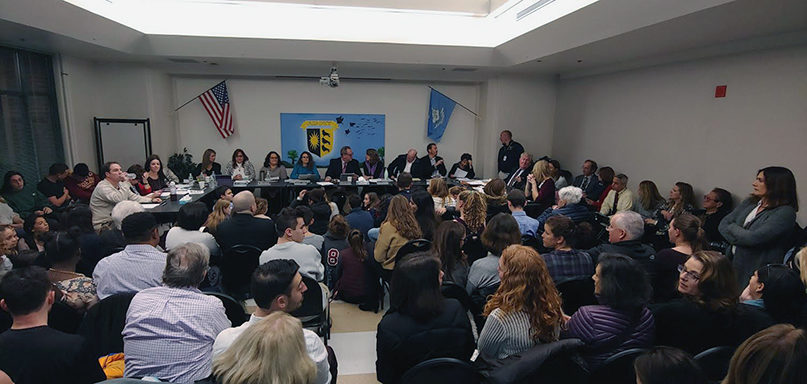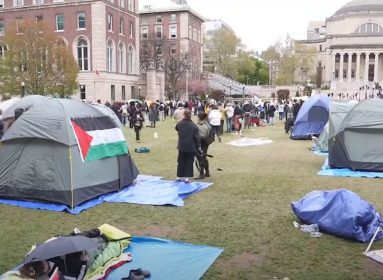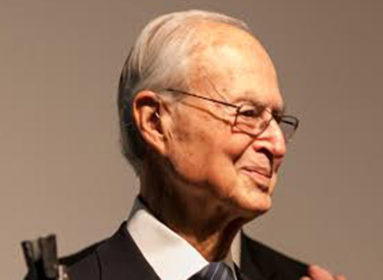
Antisemitism goes to high school…and students in Woodbridge and West Hartford speak out
By Cindy Mindell, with additional reporting by Ronni Newton
WOODBRIDGE – By now, the story of antisemitic rhetoric and graffiti at Amity Regional High School in Woodbridge has been reported throughout the state and even across the country and in Israel. Images of tearful students addressing equally tearful members of the town’s Board of Education have peppered social media sites, alongside reports from what proved to be a cathartic public forum on an alarming climate of intolerance at the school.
Now Amity and the community at large have shifted to the healing process.
On Monday evening, Nov. 12, more than 50 students addressed the Woodbridge Board of Education (BOE), each telling his or her story and ending with what became each student’s mantra, “I do not feel safe here.” The students cited incidents of verbal abuse in the school’s hallways and parking lot, and many held up cellphones to show photographs of a swastika carved on a bathroom-stall door which had been there for a long time. More than a dozen of those who spoke are members of the Woodbridge chapter of BBYO, the pluralistic Jewish teen movement.
“One by one, BBYO teens, Amity teens and community members addressed the BOE committee asking for change, teens pleading with them for help,” Josh Cohen, BBYO area director of Community Impact, told the Ledger. “They said, ‘I go to school here and I am afraid for my safety because I’m Jewish,’ or ‘I’m gay,’ or ‘I’m friends with Jewish kids,’ or ‘I’m an exchange student from another country and have been called a terrorist.’”
“The issues at Amity have completely interrupted my ability to focus on anything in class,” says BBYO member and Amity sophomore Samantha Hass.
The room was packed with fellow students, parents, Jewish leaders, and community members. State Senator Gayle Slossberg (D-Milford), the parent of an Amity graduate, had received several calls from constituents requesting her presence at the meeting.
“Historically, there’s been a sense of a challenging climate at Amity, and with issues of bias,” Slossberg says. “Whether it’s more or less than any other school, it is hard to tell but, clearly, some things had gotten to a level that demanded action and attention.”
Judy Alperin, CEO of the Jewish Federation of Greater New Haven, received a call from a community member early Monday morning, alerting her to the BOE meeting. She reached out immediately to Amity’s principal, Anne Mahon. Alperin attended the evening meeting in support of the students.
“There’s no question that we have a serious concern here but I think that it’s a symptom of a much larger societal problem,” Alperin says. “While there have always been bad actors and elements of this type of stuff probably for generations in this community, the prevalence of it and the intensity of it is something new.”
According to student reports, the source of much of the rhetoric is a specific Amity sports team.
“There is a group of kids who absolutely are at the root of the current situation,” Alperin says. “There’s been some serious action already taken with some of them and there’s been very meaningful discussions and heartfelt apologies. Our partners in ADL, who see this every single day, said that in some cases, some of these kids didn’t even understand the impact of the words or even what the words totally meant. They’re kids.”
“I was so moved by and proud of all of the young people, all the students who came to stand up and speak out,” Slossberg says. “They were articulate, clear, and respectful – but they were clearly hurting, and each one ended their statement by saying that they didn’t feel safe at school. It was incredibly powerful that students who are not Jewish were also there to support their Jewish friends and their school.”
In response to the reports voiced at the meeting, Amity Principal Anna Mahon shared the school’s strategy with the Amity community via email:
“The short-term plan – to be addressed throughout the school year – will be to work closely with local clergy, the Anti-Defamation League, the Jewish Federation of Greater New Haven and other community organizations to specifically address antisemitic and other intolerant behavior. We are also training staff in restorative practices at all three schools.”
Students arrived at school on Tuesday to find police officers in the school parking lot and Amity staff in the hallways during transition times. For the rest of the week, students were invited to meetings and counseling sessions with members of the administration and ADL Connecticut Regional Office to discuss their encounters with intolerance and to brainstorm possible solutions.
In those early days, students like sophomore and BBYO member Samantha Hass, who spoke at the BOE meeting, found it difficult to be in the school.
“While the tension has died down at least a little bit, on Monday, I was incredibly scared to go to class,” she says. “On Tuesday, I was unable to attend class at all due to the tension and fear that was unmistakable in the hallways.”
Long term, Mahon writes, the school and Board of Education will draft a two- to five-year action plan, “so as to ensure that these issues will continue to be an integral part of the curriculum at Amity Regional High School.”
Alperin says that she is “heartened” at the administration’s swift and serious response.
“There is no question there has been an escalating culture of intolerance and antisemitism which led to the teens feeling unsafe,” she says. “When I spoke to a group of kids on Tuesday, they felt better and said that there were meaningful steps to help them feel more comfortable.”
Andy Friedland, associate director of the ADL Connecticut Regional Office notes that antisemitic incidents at the K-12th grade level are currently up 97 percent. He says that the measure of a community is not in an antisemitic incident, but in the response.
“When a community shines a light on the problem and says with a clear and unified voice that this incident is not acceptable and that steps will be taken to prevent similar future incidents, that says a lot more about the community than the fact that an incident like this occurred,” he says. “That’s why we are working in partnership with administrators, teachers, students, and other groups in the area to make sure that all students feel heard, included, and safe.”
Friedland says that ADL will tailor an educational program for the school.
On Wednesday, school administrators met with community leaders from the New Haven Jewish Federation, ADL, BBYO, and local Jewish and Christian clergy.
“We had a very positive and productive meeting,” Alperin says. “The administration folks are emotional, they are raw, they are passionate about change; they don’t want this in the culture of their school and I really believe that they’re committed to longterm change. There’s no question in my mind that they’re taking all the right steps in the immediate moment to do the right thing.”
Although mostly confined to the Amity campus, the problem is one that demands a community-wide solution, Alperin says.
“I think that we’re pushing up against these forces of evil in our society that have been unleashed,” she says. “We all know that this stuff existed for millennia but we have to push all this hate and intolerance and bigotry and racism back under the rock from which it crawled out. Our leaders have to stop giving it oxygen and light and nurturing it – it’s got to get pushed back.”
At the Board of Education meeting, reports of antisemitic attacks against Jewish homes and a public building raised concerns that the problem had spread outside school walls. But Alperin clarifies that the reports were merely hearsay, but took on a heightened emotional tone in the wake of the Pittsburgh synagogue shootings.
In recent years, however, there have been several disturbing incidents of antisemitism in various Connecticut towns – most notably, in the town of Ridgefield, where, over the past two years, antisemitic graffiti has repeatedly surfaced at a local park and other venues. In addition, just last week a swastika was found painted on the sidewalk outside the Ferguson Library in Stamford, a day before a rabbi was scheduled to give a talk.
In fact, Amity High isn’t the only Connecticut high school to experience antisemitic incidents within recent weeks.
At William Hall High School in West Hartford, Leah Jackson, who is a junior at the school, was in chemistry lab on Tuesday, Nov. 13, when she said to the three other students in her group, “Let’s get our supplies.” At which point, says Jackson, “the kid next to me said, ‘Jews are always so authoritative.”‘
Jackson, who did not know the other student well, was taken aback and though the comment was inappropriate, decided not to respond. The group continued to work on the project which included using small colored balls that represented molecules and creating compounds.
“I was writing stuff down and then I looked up. There was a swastika on my desk,” says Jackson.
The swastika had been formed out of the small colored balls. “He said, ‘Is this the right compound?’” said Jackson.
The student who created the swastika was the same student who had made the earlier comment.
“I saw it and I was so upset,” says Jackson, who then excused herself from class, texted a friend, and called her father. The three then went to speak with school administrators.
A second act, mimicking what happened to Jackson, took place between Jackson’s friend and another student later in the day.
The following day, Hall Principal Dan Zittoun sent a letter to students, which read in part: “As a collective group, our student body embraces this diversity and demonstrates a high level of respect. However, even in our community, we have isolated incidents that do not reflect our overall beliefs and culture and are not representative of the Hall community.”
Zittoun went on to say that acts of antisemitism within Hall had been brought to the attention of administrators and were being addressed.
“I have already begun discussions with some students to take steps to make all students feel safe at school. In addition, we have also been in contact with various outside groups to discuss our current educational programming and explore new ones,” Zittoun said in the letter.
Like the students at Amity, Jackson, who is also a member of BBYO, got in touch with the youth group’s director, Josh Cohen, and also reported the incident to ADL.
Since then, Jackson and five other students met with Hall administators, telling them that the students wanted to take action.
“It’s an issue we really want to address,” she said.
Likewise, Amity High students have taken the lead, launching social media campaigns – #StrongerThanHate and #ItEndsHere – and rallying at the school’s Diversity in Action club and Student Climate Committee.
“Although I have never experienced first-hand hate, I have been greatly affected just like so many others in this school and in our community,” says senior and BBYO member Ally Grubman, who attended the BOE meeting and schoolwide conversations with administration and guidance counselors, ADL representatives, and the Student Climate Committee.
“I was one of the many who felt fear walking the halls, not proud to be Jewish. However, I am no longer afraid and instead want to help those who haven’t yet found their own voice and help spread kindness,” she adds.
Grubman reports that the adults in charge seem committed to find “the most effective and appropriate solution in order to prevent this from ever happening again.”
Both Slossberg and Alperin see the students leading the way to a solution, with the community at large ready to help when asked.
“What is most significant is that the students have been included in the process and I believe that that’s what will continue to go on,” Slossberg says. “Addressing school-climate issues is a complicated and difficult matter. “It seems that the school, administration and Board of Education understand that, and I believe they’re on the right path to working together to address it.”
Amity sophomore and BBYO member Samantha Hass says school administrators have been very clear about their intention to work with students on a solution.
“The vice principals asked me every day if I’m okay or if I need anything, or if I even need a walk to class,” she says. “In addition, I’ve met with people in the guidance office to try to get my frustration about the issue out. There have been mediated ‘solution-seeking’ meetings in which students have the opportunity to congregate in one of the rooms at our school with the presence of administrators and guidance counselors. The guidance office has also been incredibly helpful, to me at least, in helping to calm everything down and openly discussing the topic.”
Hass believes that the most effective solution would be a student-led program.
“As an active BBYO member, I know that many of us are willing to write and lead a program with the school population,” she says. “I think that we as students are the ones who are most invested in solving the problem and are the most desperate for change, and the best solution would be to have us, the affected students, lead an open discussion on discrimination and hate.”
Grubman shares the long view.
“Everyone has different healing processes,” she says. “I believe that it will take people different amounts of time and that this time must be respected by all. I and others stand with those who have been affected by hate in the past and present and are working to spread positivity for the future.”
Parts of this article are reprinted with permission of We-Ha.com.
CAP: Amity High School students and Jewish community leaders packed the houseat a recent Woodbridge Board of Education meeting.







 Southern New England Jewish Ledger
Southern New England Jewish Ledger















